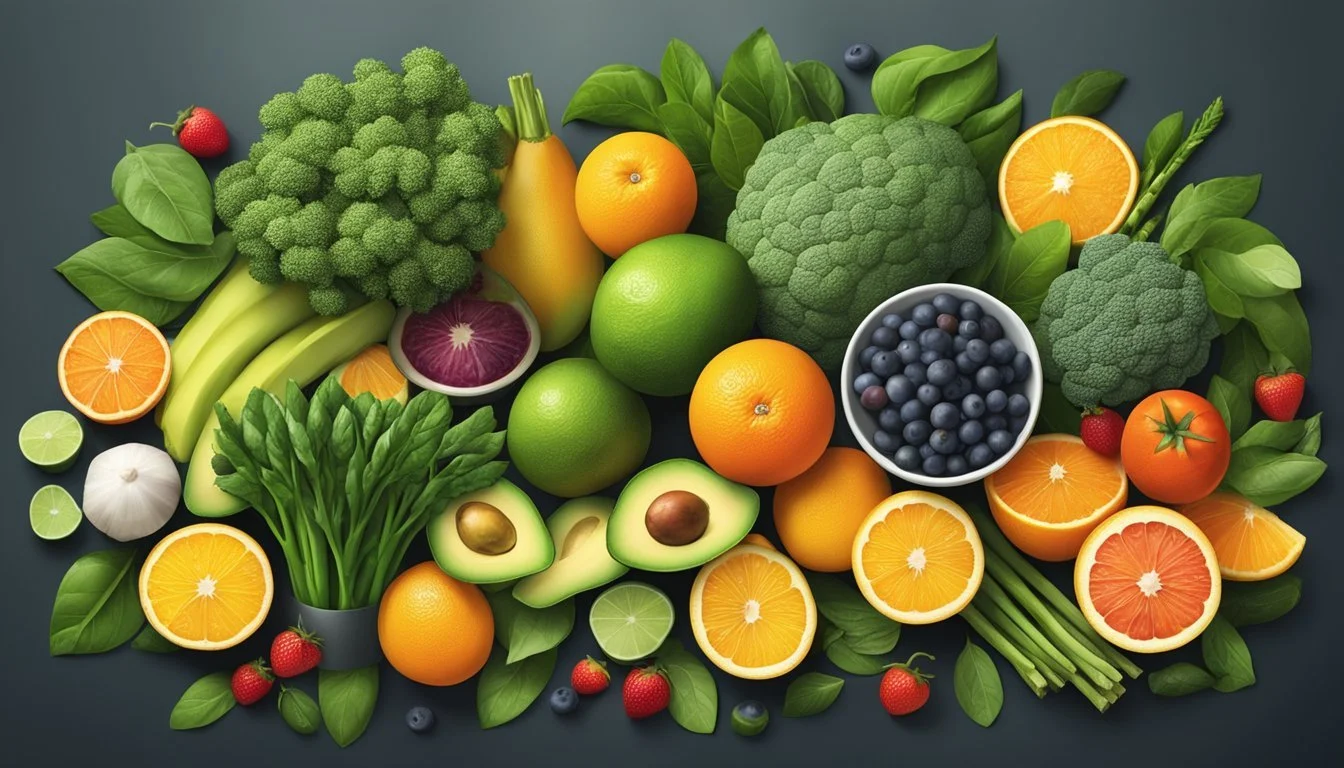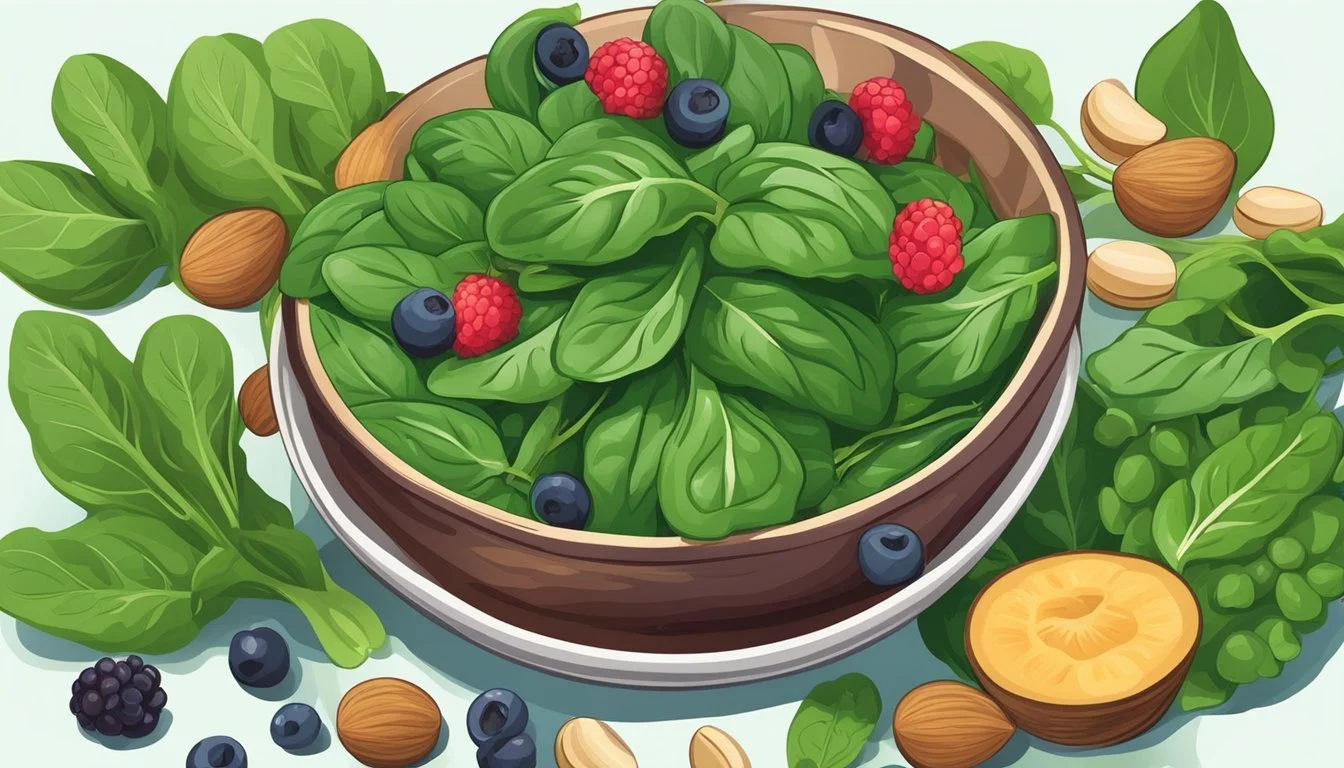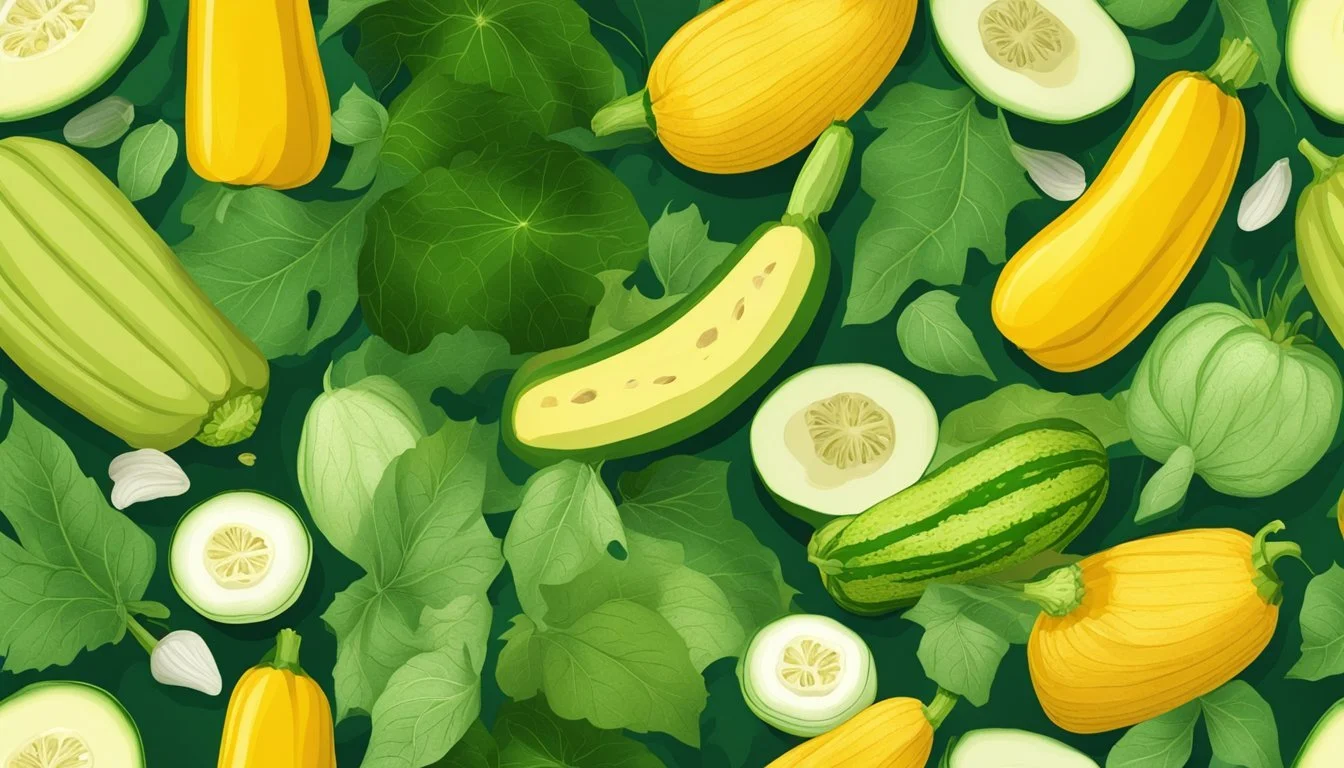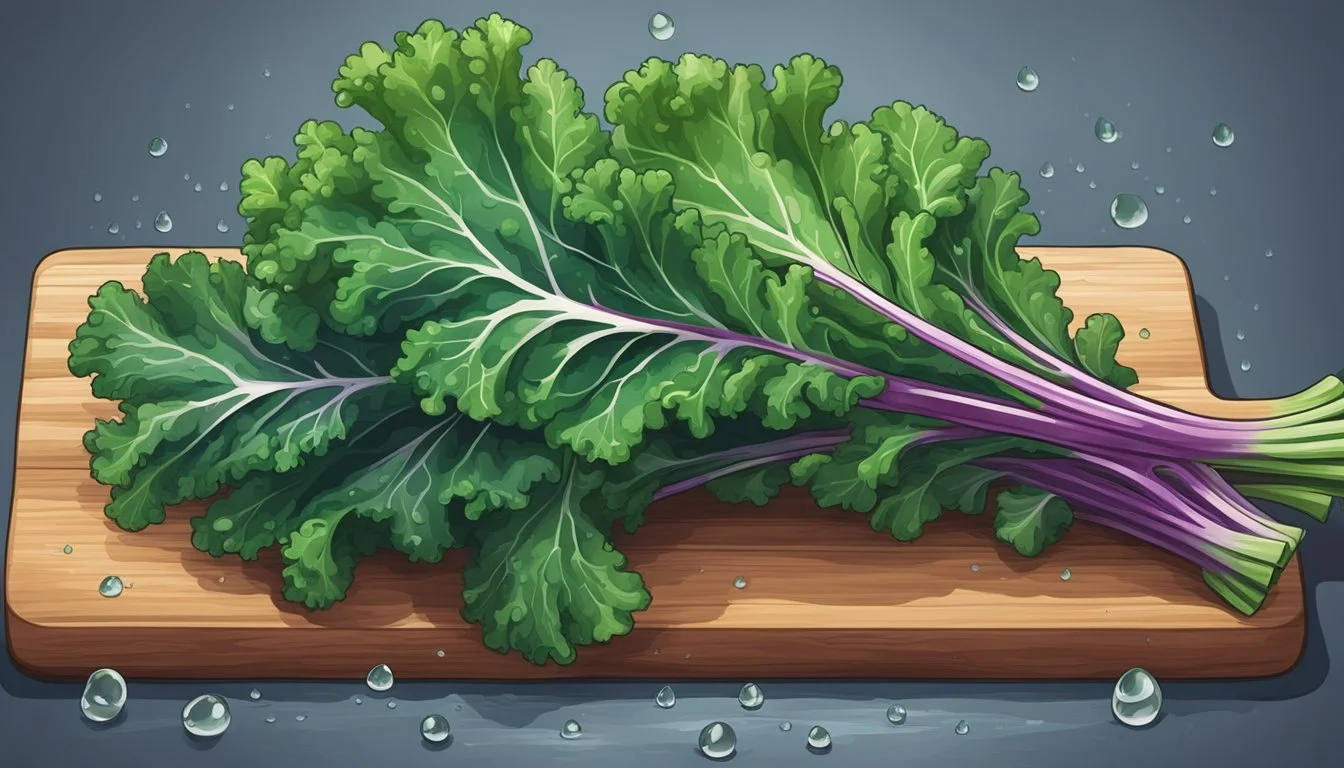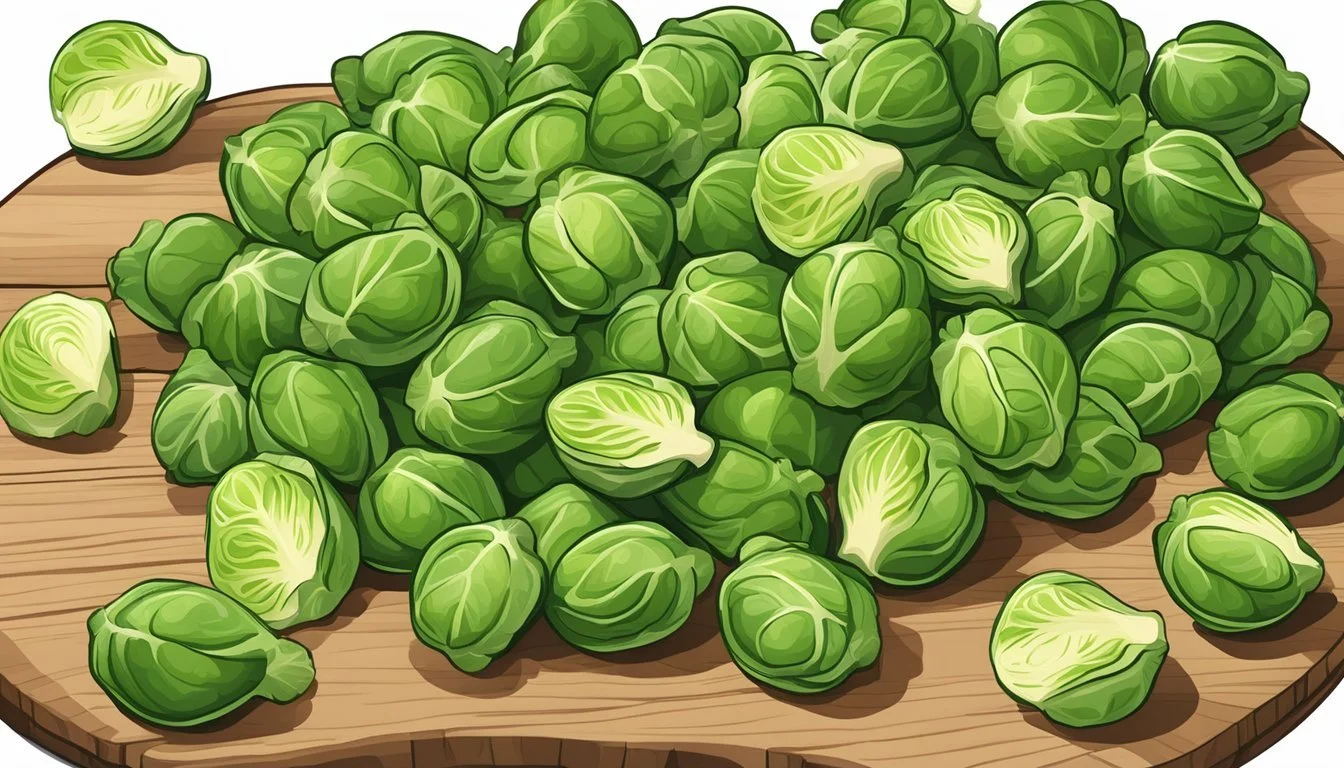Foods Rich in Glutathione and Its Precursors
Boost Your Antioxidant Intake
Glutathione is a powerful antioxidant that plays a crucial role in protecting cells from damage, detoxifying harmful substances, and supporting the immune system. Found in nearly every cell of the body, maintaining adequate levels of glutathione is essential for overall health and well-being. Incorporating foods high in glutathione into your diet is an effective way to boost the body’s natural defenses.
Dietary sources of glutathione, along with other nutrients that support its production, can be naturally integrated into daily meals. By focusing on nutrient-rich foods, individuals can ensure their bodies receive the necessary components to optimize glutathione levels. This article explores various foods known to be high in glutathione and those that aid in its synthesis, helping readers make informed decisions about their dietary choices.
1) Asparagus
Asparagus is among the top vegetables rich in glutathione. This green vegetable is known for its high nutrient content, which includes significant levels of glutathione, a powerful antioxidant.
Consuming asparagus can support the body's natural detoxification processes. Its high levels of glutathione help in combating oxidative stress and maintaining cellular health.
Moreover, asparagus is also a good source of vitamins such as vitamin A, C, and E, which further enhance its antioxidant properties. It's best enjoyed steamed or lightly cooked to preserve its glutathione content and nutritional benefits.
2) Spinach
Spinach stands out as a significant source of glutathione. This leafy green provides not only glutathione but also essential vitamins and minerals. These nutrients contribute to multiple health benefits.
Consuming spinach can help boost the body's antioxidant defenses. Spinach contains about 7 milligrams of glutathione per 100 grams, making it a valuable addition to a diet focused on increasing antioxidant intake.
In addition to glutathione, spinach is rich in vitamin C, vitamin K, and folate. These vitamins aid in various bodily functions, from immunity to blood clotting.
Eating spinach regularly can support overall well-being and may help maintain vital processes in the body. Adding spinach to salads, smoothies, or cooked dishes is a simple way to incorporate this nutrient-dense vegetable into daily meals.
3) Avocados
Avocados are a rich source of glutathione.
Known as "nature's butter," avocados are not just delicious but also highly nutritious. They contain significant amounts of glutathione, a powerful antioxidant that aids in detoxifying the body.
Apart from glutathione, avocados are packed with vitamins D, K, and E, which support various bodily functions.
The presence of healthy fats in avocados helps in the absorption of fat-soluble vitamins. This makes them a great addition to a balanced diet.
Incorporating avocados into meals can provide a natural boost to glutathione levels, supporting the body's defense mechanisms. Whether added to salads, smoothies, or eaten on their own, avocados offer versatile and valuable nutrition.
In addition to their glutathione content, avocados are also rich in potassium and fiber. These nutrients contribute to overall health, making avocados a staple for those looking to enhance their diet naturally.
4) Okra
Okra is a vegetable known for its rich glutathione content. This makes it a valuable addition to a diet focused on boosting antioxidant levels. Glutathione, a powerful antioxidant, helps in reducing oxidative stress and promoting overall health.
Raw okra, in particular, is high in glutathione precursors. These precursors assist in its synthesis within the body, enhancing its antioxidant capabilities. Including raw okra in salads or as a snack can be a practical way to benefit from its properties.
In addition to glutathione, okra is packed with other essential nutrients. It contains vitamins A and C, which support immune function, and dietary fiber, which aids in digestion. Its nutrient profile makes it a versatile option for various healthy dishes.
The vegetable also plays a role in detoxifying the body. The mucilage in okra binds to toxins in the intestines, helping in their removal from the body. This contributes to its detoxifying effects, making it beneficial for people looking to improve their overall well-being.
Incorporating okra into your diet can be straightforward. It can be added to soups, stews, or stir-fries without losing much of its nutritional value. For those looking to maximize their glutathione intake, consuming okra raw or lightly cooked is advisable.
5) Zucchini
Zucchini, a type of summer squash, is a versatile vegetable packed with numerous nutrients. Among its benefits, zucchini offers a decent amount of glutathione, an important antioxidant that supports the body's detoxification processes.
This vegetable is rich in vitamins A and C, which are crucial for glutathione production and overall cellular health. The presence of zinc and manganese in zucchini also supports enzymatic functions that help maintain optimal levels of this antioxidant.
Easy to incorporate into various dishes, zucchini can be eaten raw in salads, grilled, roasted, or added to soups and stews. Its subtle flavor makes it an excellent addition without overpowering other ingredients.
Moreover, zucchini is low in calories yet high in fiber, promoting digestive health while contributing to glutathione levels. Including zucchini regularly in the diet can be an effective way to boost antioxidant intake naturally.
6) Broccoli
Broccoli stands out as a top source of glutathione. Each 100 grams of this cruciferous vegetable contains approximately 9 milligrams of the antioxidant.
Rich in vitamins K and C, broccoli is also packed with dietary fiber, carotenoids, and additional antioxidants.
Beyond glutathione, broccoli's sulfur content plays a vital role in enhancing enzyme activity related to glutathione production. Incorporating broccoli in meals can support overall antioxidant levels.
Steaming or lightly cooking broccoli can preserve its nutrients effectively. Additionally, pairing it with other sulfur-rich foods can boost glutathione synthesis further.
Incorporating broccoli regularly into one's diet may promote a natural increase in glutathione levels, contributing to better overall health.
7) Kale
Kale is a leafy green vegetable known for its impressive nutritional profile. It contains high levels of glutathione, a powerful antioxidant that plays a crucial role in cellular function and detoxification.
Rich in sulfur compounds, kale supports the natural production of glutathione in the body. These sulfur compounds also aid liver detoxification processes.
Kale is also abundant in vitamins A, C, and K. These nutrients contribute to the overall antioxidant capacity, helping to maintain glutathione levels.
Including kale in a balanced diet is easy. It can be eaten raw in salads, blended into smoothies, or lightly steamed for a nutritious side dish. Its versatility and health benefits make it a valuable addition to any meal plan.
8) Cabbage
Cabbage, a member of the cruciferous vegetable family, is known for its high glutathione content. This antioxidant is crucial for detoxifying the body and supporting overall health.
Cabbage contains a variety of nutrients, including vitamins C and K, fiber, and folate. These nutrients contribute to its ability to boost glutathione levels.
Both raw and cooked cabbage can be beneficial. Cooking methods such as steaming or sautéing can help retain its nutritional value.
In addition to its glutathione-boosting properties, cabbage provides sulfur compounds. These compounds are vital for glutathione synthesis in the body.
Regular consumption of cabbage can aid in detoxification processes. It also supports immune function due to its rich array of vitamins and antioxidants.
9) Brussels sprouts
Brussels sprouts are a remarkable source of glutathione. This cruciferous vegetable is not only high in glutathione but also rich in vitamins C and K.
Each 100 grams of Brussels sprouts contains beneficial antioxidants that support overall health. They are known to aid in the production of glutathione precursors, which help maintain adequate levels of this antioxidant in the body.
Besides glutathione, Brussels sprouts are packed with dietary fiber, essential for digestive health. They also contain sulforaphane, a compound that further enhances their health benefits and contributes to the body's detoxification processes.
Incorporating Brussels sprouts into meals is easy and can significantly enhance one's intake of vital nutrients. Roasting, steaming, or adding them to salads can make them a delicious and beneficial part of any diet.
10) Peppers
Peppers are a nutritious addition to any diet, offering a significant boost in glutathione levels. Various types of peppers, including bell peppers, are rich in vitamins C and E, both of which are important for glutathione production in the body.
Bell peppers, in particular, are an excellent source of glutathione. They contain high levels of antioxidants, which support the body's detoxification processes and help maintain overall health. Both red and yellow bell peppers provide these benefits, making them versatile options for different recipes.
Incorporating peppers into your diet is simple. They can be eaten raw in salads, roasted, or added to a variety of dishes. This flexibility ensures that you can enjoy their benefits without monotony. Peppers not only enhance the nutritional value of your meals but also add vibrant color and crunch.
Health Benefits of Glutathione
Glutathione plays a crucial role in reducing oxidative stress, supporting detoxification processes, and enhancing the immune system. These benefits are highly significant for maintaining overall health.
Antioxidant Properties
Glutathione is a powerful antioxidant that helps neutralize free radicals in the body. Free radicals can cause cell damage, oxidative stress, and contribute to aging and various diseases.
By neutralizing these harmful molecules, glutathione protects cells and tissues from damage. This function is especially important in organs with high metabolic activity, such as the liver and the brain.
Additionally, glutathione helps regenerate other antioxidants like vitamins C and E, thereby amplifying the body's defense mechanisms against oxidative stress.
Detoxification Support
The detoxification process in the liver relies heavily on glutathione. It binds to toxins and facilitates their conversion into a form that can be more easily excreted through urine or bile.
This process is essential for the elimination of harmful substances, including heavy metals, pollutants, and metabolic waste products. Without adequate levels of glutathione, the body's ability to detoxify can become compromised.
Moreover, glutathione supports Phase II detoxification enzymes, which are vital in mitigating the toxic effects of various drugs and chemicals.
Immune System Enhancement
Glutathione plays a critical role in maintaining immune function. It helps in the proliferation of T-cells, which are essential for the adaptive immune response.
T-cells require glutathione to function effectively, especially in fighting infections. Adequate levels of glutathione improve the efficiency of these cells in recognizing and destroying pathogens.
Additionally, glutathione helps regulate inflammation by controlling cytokine production, ensuring that the immune response is balanced and effective. This regulation helps in preventing chronic inflammatory conditions and supports overall immune resilience.
How Glutathione is Absorbed in the Body
Glutathione, a crucial antioxidant, is primarily produced within the body. While dietary sources contribute, the absorption process is influenced by several factors such as bioavailability and the presence of certain nutrients.
Role of Dietary Sources
Dietary glutathione is not easily absorbed intact by the digestive system. Foods like avocados, spinach, and okra are high in glutathione but offer limited direct absorption.
Instead, these foods support the body's internal production of glutathione. They are rich in sulfur-containing amino acids necessary for making glutathione.
Animal-based foods such as fish, meat, and dairy also contain these amino acids. Consuming a variety of these foods can create a supportive environment for glutathione synthesis.
Bioavailability Factors
The bioavailability of glutathione from foods is a significant consideration. Raw foods may retain more of their glutathione content than cooked foods.
Additionally, foods containing vitamin C and selenium can help boost glutathione levels. These nutrients aid in the recycling of oxidized glutathione.
Supplements like N-acetylcysteine (NAC) are often used to enhance glutathione production, as they provide cysteine, a precursor. Factors such as gut health and overall nutritional status also play a role in how effectively the body can produce and utilize glutathione.

